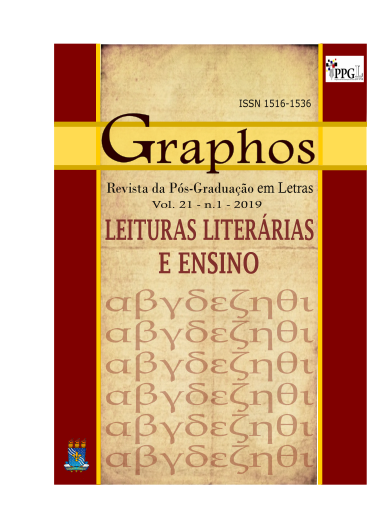Brazilian indian literature: between tradition, criticism and resistance
Keywords:
Indian Literature, Tradition, Criticism, Resistance, DeconstructionAbstract
This paper explores the Brazilian Indian literature produced since the1990s. This is seen as an aesthetical-political perspective which intertwines ancestral tradition with and as critic of the present, cultural resistance and political struggle, profoundly allying to the Brazilian Indian Movement that appeared in the end of the 1970s, and, actually, becoming its instrument for normative legitimation. Indian literature is understood as political standing and pedagogical praxis of the Indians by and from themselves, directed to the politicization of Indian issues emerging from a profound dialogue with the civil society about our social-cultural and institutional constitution. Therefore, it is argued that the reading key for Indian Literature should be its connection to the Indian Movement, its radical politicization, and its use of tradition as critics of the present as methodological tools for the access to it and mainly not to forget its deep political and politicizing sense and orientation.
Downloads
References
ALMEIDA, Maria Inês de; QUEIROZ, Sônia. Na captura da voz: as edições da narrativa oral no Brasil. Belo Horizonte: Autêntica; FALE UFMG, 2004.
JEKUPÉ, Olívio. Literatura escrita pelos povos indígenas. São Paulo: Scortecci, 2009.
KOPENAWA, Davi; ALBERT, Bruce. A queda do céu: palavras de um xamã yanomami. Tradução de Beatriz Perrone-Moisés. São Paulo: Companhia das Letras, 2015.
KRENAK, Ailton. Encontros. Organização de Sergio Cohn. Rio de Janeiro: Azougue Editorial, 2015.
KRENAK, Ailton. Ailton Krenak. Organização de Sergio Cohn e de Idjahure Kadiwel. Rio de Janeiro: Azougue Editorial, 2017.
MUNDURUKU, Daniel. Memórias de índio: uma quase autobiografia. Porto Alegre:
EDELBRA, 2016.
MUNDURUKU, Daniel. O caráter educativo do movimento indígena brasileiro (1970- 1990). São Paulo: Paulinas, 2012.
MUNDURUKU, Daniel. Mundurukando 2: sobre vivências, piolhos e afetos – roda de conversa com educadores. Lorena: U’KA Editorial, 2017.
POTIGUARA, Eliane. Metade cara, metade máscara. São Paulo: Global, 2004.
ROMERO, Francisco Javier. La literatura indígena mexicana en búsqueda de uma identidad nacional. In: XXXVIII Congreso Internacional Instituto Internacional de Literatura Iberoamericana Independencias: Memoria y Futuro, 9 a 12 de junio de 2010, Georgetown University, com colaboración de George Washington University y Universityof Maryland, College Park. Disponível em: http://www.iiligeorgetown2010.com/2/pdf/Romero.pdf. Acesso em: 10 fev. 2018.
THIÉL, Janice. Pele silenciosa, pele sonora: a literatura indígena em destaque. Belo Horizonte: Autêntica Editora, 2012.
TUKANO, Álvaro. Álvaro Tukano. Organização de Sergio Cohn e de Idjahure Kadiwel. Rio de Janeiro: Azougue Editorial, 2017.
VALENTE, Rubens. Os fuzis e as flechas: história de sangue e resistência indígena na ditadura. São Paulo: Companhia das Letras, 2017.
WERÁ, Kaká. Kaká Werá. Organização de Sergio Cohn e de Idjahure Kadiwel. Rio de Janeiro: Azougue Editorial, 2017.
WERÁ, Kaká. Ore Awé Roiru’a Ma: todas as vezes que dissemos adeus. São Paulo:
TRIOM, 2002.
WERÁ, Kaká. A terra dos mil povos: história indígena brasileira contada por um índio. São Paulo: Peirópolis, 1998.
ZANCAN, Márcia Rejane Kristiuk. “A literatura canônica e a voz do indígena”. Litterata, vol. 6/2, jul-dez, ISSN 2237-0781, p. 59-70, Ilhéus, 2016.







